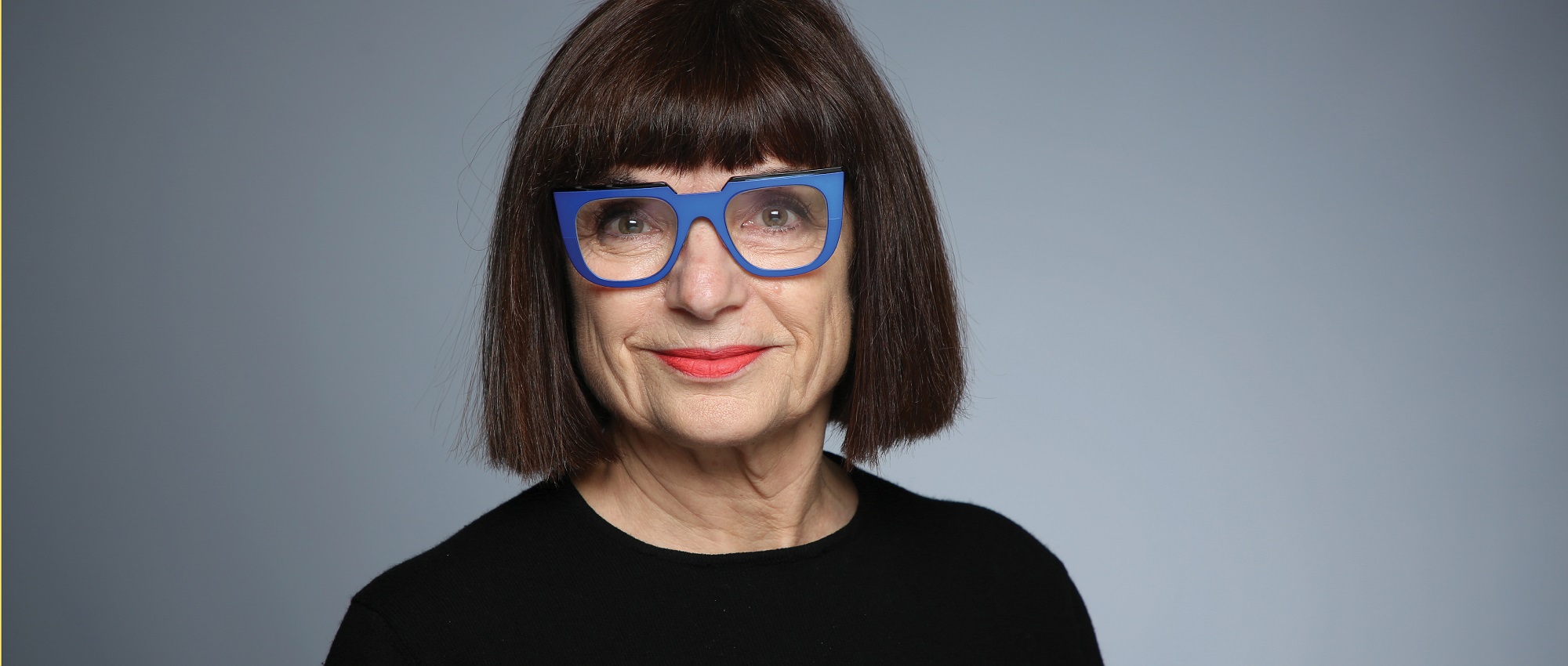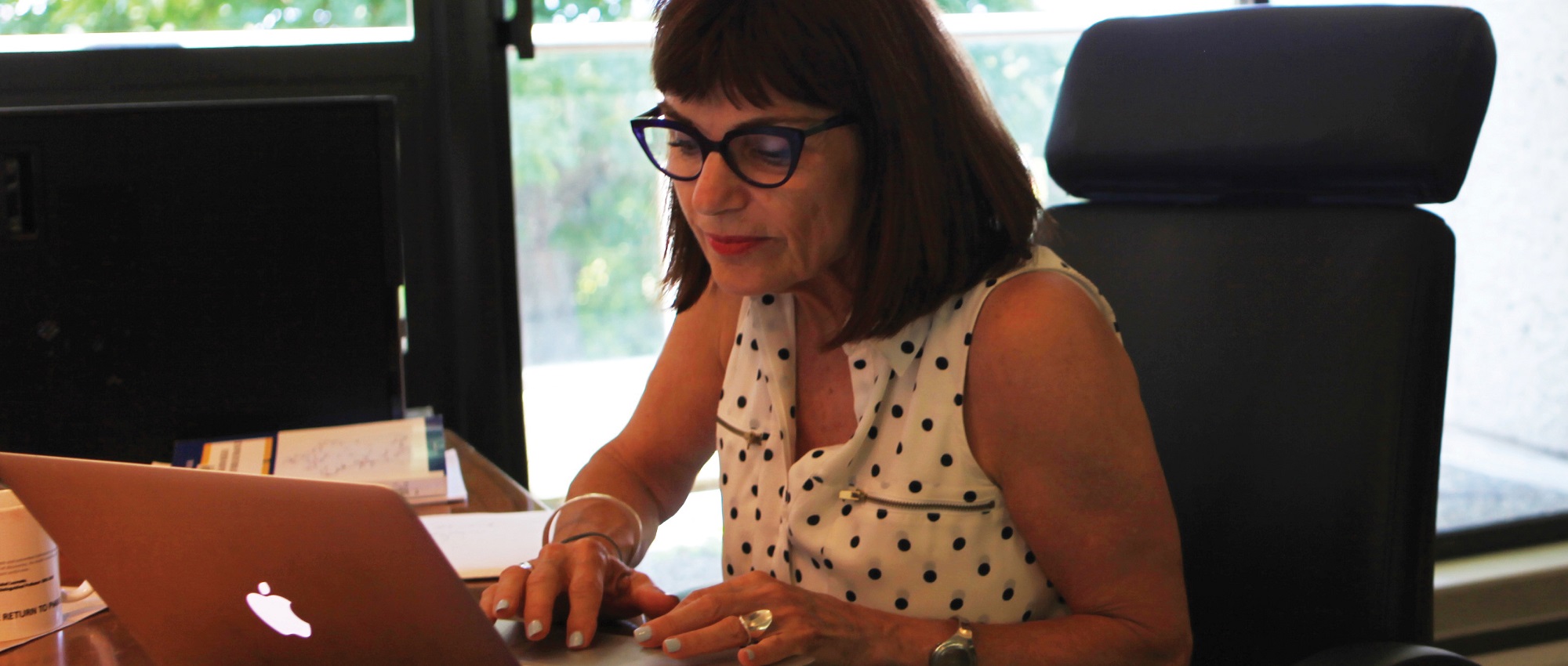Upon her retirement, Dr. Sima Godfrey reflects on the most memorable moments of her 32 years as a faculty member in UBC’s French program—including powerful stories about students who have impacted her as much as she has impacted them.


Dr. Sima Godfrey, Associate Professor Emerita of French Studies
“Watching students grow from undergrad to grad to post-grad, and integrate their various interests and ambitions, has been one of the most rewarding aspects of my career.”
The most rewarding memories I have involve students, some of whom I have had the pleasure of meeting years later at conferences, having become professors themselves.
It is not necessarily the students with the best grades who left the strongest impression. Sometimes it was the timid students who found their voice over the course of a term. Other times it was students who fell in love with a work we were studying, or who were baffled by one and wanted to talk about it during office hours. Or the quiet student in the back row who turned in an original interpretation of a poem that I had never thought of.
Especially gratifying were the students who were able to combine their work on French literature with their interests and studies outside of French: students who want to relate French literature to paintings they were studying in an Art History class, or Zoology students interested in Balzac’s investment in natural history in the Human Comedy.
One student had worked as an interpreter for tourists at a cooking school in France and started catering to pay her way through school. She ended up doing a masters thesis that analyzed the meals in a few novels by Zola, with all the culinary and class associations they invoked. One exchange student from Barcelona with a linguistics background ended up publishing the first Catalan translation of a tale by Théophile Gautier that we had studied.
In such instances, I learned as much from the students as I hoped they might have learned from me.


Activists campaign to free Loujain al Hathloul. | Source: Samzek, CC BY-SA 4.0 <https://creativecommons.org/licenses/by-sa/4.0>, via Wikimedia Commons
“One student who has truly humbled and inspired me in recent years is Loujain al Hathloul. She set out to change the world armed with her own fearless convictions and a BA in French.”
Loujain al Hathloul is a French major from Saudi Arabia who graduated in 2014. She was in a class I taught called “Qu’est-ce que la francité?”, which looked at various themes and principles of French national identity. There was no textbook for the class, just a thick course pack with readings going back to the French Revolution.
Upon graduation, Loujain returned to Saudi Arabia to advocate for women’s right to drive and for the dissolution of the male guardianship system. For her efforts, she and other women activists were imprisoned without cause on May 15, 2018. While many of her colleagues were set free, following months of solitary confinement and torture, Loujain was only released from prison on February 10, 2021.
Several months ago, she contacted me and we have written to each other and have now been able to chat onscreen. The first time we reconnected face to face, she pulled out her old FREN 334 course pack, opened it to a specific page and held it up to the screen. It was the 1791 « Déclaration des droits de la femme et de la citoyenne » (Declaration of the Rights of Woman and the Female Citizen) by Olympe de Gouges that we had discussed in class, alongside the 1789 Declaration of the Rights of Man and the Citizen. She told me she had never forgotten that text or our class discussions. I was speechless.
“Each page of Laberge's novels made me walk a step further from my jail cell. I have crossed time and oceans with her. The parts describing the feminist movement gave me even more strength to overcome fear, pressure and moments of weakness.”
In one email, I reminded Loujain of the class visit of the Quebec actress, author and playwright, Marie Laberge, whose play was being studied that year. Here is part of the text Loujain sent me back:
« Je me rappelle la visite de Mme Laberge, j’avais même acheté ses romans. Je n’avais jamais le temps de les lire, mais en prison mes parents m’avaient amené des livres de ma bibliothèque, et la série Le Goût du Bonheur de Mme Laberge était parmi eux. Chaque page de ses romans me faisait marcher un pas plus loin de ma cellule. J’ai traversé les temps et les océans avec elle. Les parties décrivant le mouvement féministe me donnais encore plus de force pour surmonter la peur, la pression et les moments de faiblesse. Jamais je n’aurais imaginé que sous ces circonstances je lirais ses histoires. »
[English translation] “I remember Ms. Laberge’s visit, I even bought her novels. I never had time to read them, but in prison my parents had brought me books from my library, and Madame Laberge’s Le Goût du Bonheur series was among them. Each page of her novels made me walk a step further from my jail cell. I have crossed time and oceans with her. The parts describing the feminist movement gave me even more strength to overcome fear, pressure and moments of weakness. I never imagined that under these circumstances I would read her stories.”
This is why we do what we do. For anyone who has ever challenged the value of the humanities or questioned the “usefulness” of literature (in any language), they should know about this remarkable young woman who has now been twice nominated for the Nobel Peace Prize and is the winner of the 2020 Václav Havel Human Rights Prize. She set out to change the world armed with her own fearless convictions and a BA in French.
The Department of French, Hispanic and Italian Studies (FHIS) should be very proud.
Career Highlights


“Do not shy away from new opportunities or new challenges out of fear of making mistakes. This is as true intellectually as it is institutionally.”
I have worn different badges since arriving at UBC in 1989. At first I worked in the French Department headed by the legendary Larry Bongie, the last remaining head for life at UBC. Later I found myself in an expanded and energized Department of French, Hispanic and Italian Studies.
Between 1998 and 2007, I served as the founding Head of the Institute for European Studies at UBC, where we ran three international conferences a year, introduced the first interdisciplinary MA program in European Studies (relating to the EU) in Canada and sent students off to the European Commission in Brussels. It was both scary and exciting to build something new from the ground up. There was a steep learning curve, there were many challenges, we knew that some of the things we tried might work and that others would fail, but that this was not a reason to avoid taking risks. If I have a lesson to share, it is this: do not shy away from new opportunities or new challenges out of fear of making mistakes. This is as true intellectually as it is institutionally.
Along the way I have enjoyed many memorable moments of unexpected pleasure and laughter. Years ago I published an article titled “Lamartine and my shoes”, which looked at the significance of metaphors for shoemaking and footwear in 19th-century French poetry and considered the “worker-poetry” of some mid-19th-century shoemakers. The greatest thrill of my career came when I received a request from La Chaussure, Revue de l’Institut de calcéologie, to translate and publish it in their beautiful glossy coffee-table magazine. I subsequently had a business card made that said: “Sima Godfrey, calcéologue.”
Recent Paris Research Trip
I leave my career at UBC on a high note, having just spent five glorious weeks in Paris during which I completed my research and the book I have been working on for far too long, La Guerre de Crimée n’aura pas lieu (Crimea, the War the French Won and Forgot). I was delighted to stumble onto documents I had been searching for in beautiful old libraries in Paris.
The most moving event of my stay, however, was watching the ceremonial induction of Josephine Baker into the Pantheon, only the ninth woman to be admitted and the first woman of colour, born moreover outside of France. As I watched the solemn parade of her casket with full military honours moving towards the Pantheon, while loudspeakers broadcast her music and thousands applauded, I felt privileged to witness this moment and turning point in French history.
Parting Words
For all my colleagues and students who are braving the academic year under the uncertain cloud of COVID-19, I salute you and admire you. I hope to run into many of you when I come to campus. Coffee is on me. Bonne année, bonne santé, bonne continuation et bonnes aventures.


